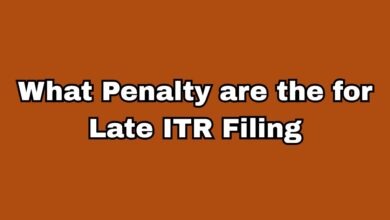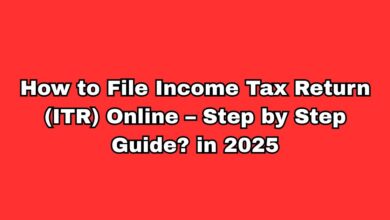ITR Filing for Cryptocurrency and Digital Assets Income in India
In the last few years, many Indians have started investing in crypto currencies like Bitcoin, Ethereum, and other digital assets such as NFTs. But when it comes to paying taxes and filing Income Tax Returns (ITR), things can feel confusing. The government has made clear rules on how income from cryptocurrencies and digital assets will be taxed, and it is important to follow them to avoid penalties.

Read More : What Penalty are the for Late ITR Filing
1. How Crypto and Digital Assets Are Taxed in India??
From April 1, 2022, a new section 115BBH was added to the Income Tax Act. This section deals specifically with Virtual Digital Assets (VDAs), which includes cryptocurrencies, NFTs, and similar assets.
Flat 30% Tax:
Any income you make from selling or transferring crypto or digital assets is taxed at 30%, no matter what your income slab is.
No Deductions Allowed:
Apart from the cost of acquisition (the price you paid to buy it), you cannot claim any expenses or deductions like internet fees, mining costs, or transaction charges.
1% TDS (Tax Deducted at Source):
On every crypto transaction above a certain limit, exchanges or platforms will deduct 1% TDS. You can see this TDS amount in your Form 26AS when filing ITR.
No Set-Off of Losses:
If you lose money in crypto, you cannot set it off against other income (like salary, stock market profits, or business income). Also, you cannot carry forward these losses to future years.
2. Which ITR Form to Use??
If you are an individual or HUF with crypto income, you should file using ITR-2 (if you don’t have business income). If you are doing crypto trading as a business activity (like a full-time trader), you may need to file using ITR-3.
3. How to Report Crypto Income in ITR??
When filing your ITR, you must report details of your crypto or digital asset income under the section for “Income from Other Sources” or “Capital Gains” (depending on your case).
You will need:
- Date of purchase and sale
- Amount paid and received
- Details of TDS deducted
- Net profit from each transaction
- Most exchanges now give transaction statements which make it easier to calculate.
4. Example :
Suppose you bought Bitcoin for ₹1,00,000 and later sold it for ₹1,50,000.
- Your profit = ₹50,000
- so Tax will be @30% = ₹15,000
You will also pay surcharge and cess on top of this.
If the exchange already deducted 1% TDS (₹1,500), you can adjust it while filing ITR.
So finally, you need to pay ₹13,500 more while filing your return.
5. Penalties for Not Reporting
If you earn from crypto or NFTs and don’t report it in your ITR:
- You may get a tax notice.
- You will have to pay interest and penalty on the unpaid tax.
- In some cases, legal action may also be taken.
- So it’s always better to file your ITR honestly and on time.
6. Takeaways :
- Crypto income is taxed at 30% flat rate.
- You cannot adjust crypto losses against other income.
- 1% TDS is deducted on transactions.
- File using ITR-2 or ITR-3, depending on your case.
- Always keep records of your trades.
In short: If you are earning from cryptocurrencies, NFTs, or any digital assets, treat it just like your salary or business income while filing taxes. The rules are strict, but once you know the process, it becomes much easier to handle.
Click here to visit official website of Income Tax for more information

